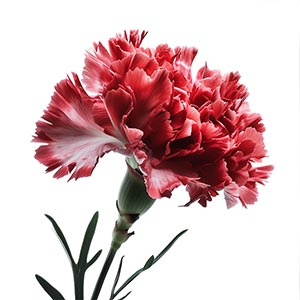Carnation, also known as clove-pink, is a popular choice in perfumery and closely resembles the cottage garden pink variety. It emits a spicy, clove-like aroma, which is often missing in the carnations found in supermarkets and garage forecourts.Carnation absolute is exclusively produced in the south of France. This plant's chemical structure is particularly rich in an aromatic compound called eugenol. Frequently, the scent in a perfume is not directly derived from the plant itself but has been synthesized.To produce one kilo of concrete, it takes 500 kilos of flowers, and roughly one-tenth of that amount to produce the same quantity of absolute.In perfume compositions, carnation typically plays a supporting role rather than taking center stage. This piquant, spicy flower is a key element in many Ambrée perfumes, adding a delicious, almost nose-tingling brightness that beautifully complements the floral notes.
Natural or Synthetic?
Carnation is used both naturally and synthetically. The natural absolute, extracted from Dianthus caryophyllus flowers, has a rich, spicy, floral aroma. Synthetic replicas often use compounds like eugenol to mimic its distinct spicy floral scent.
Fragrance Families Carnation Most Commonly Found In
Show fragrances that contain Carnation as a note



